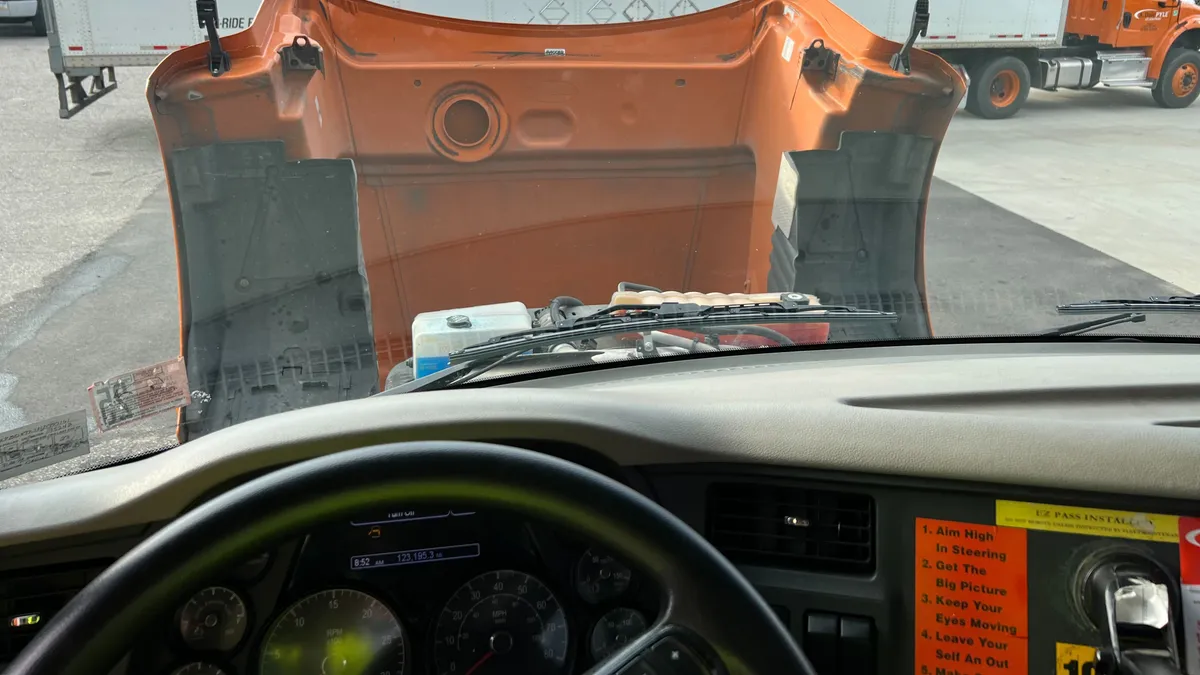Lewie Pugh cautioned lawmakers in Washington about the dangers of split speed limits for cars and trucks — and an ulterior motive he said big trucking has for wanting a federal speed limiter mandate.
Such a rule would “further squeeze small businesses to the benefit of corporate motor carriers,” the Owner-Operator Independent Drivers Association EVP testified this month, “forcing our members to purchase costly technology they don’t need just to move at the same speed as their large competitors.”
But speed-limited trucks were involved in half as many high-speed collisions as those not using speed limiters, the Truck Safety Coalition argued, citing 2012 Department of Transportation research. And American Trucking Associations President and CEO Chris Spear dismissed opposition to capping speeds as “irresponsible.”
“Driving as fast as you can as long as you like kicks safety to the curb,” Spear said in a statement. “Safety is a winning issue and ATA enjoys winning. This issue is no exception.”
The May 10 congressional subcommittee hearing on supply chain issues drew attention back to the speed limiter issue, underscoring one of the biggest divides within the trucking industry. The FMCSA is considering requiring the tech in trucks, and the agency expects to put forth a proposal “by the end of summer or early fall,” Administrator Robin Hutcheson told Land Line.
“Everyone knows excessive speed kills,” ATA EVP of Advocacy Bill Sullivan said in a statement, calling it an “irrefutable fact of physics.”
‘A predictable regulatory disaster’
The National Association of Small Truck Companies joined OOIDA in applauding U.S. Rep. Josh Brecheen’s Deregulating Restrictions on Interstate Vehicles and Eighteen-Wheelers (DRIVE) Act earlier this month.
Speed differentials between vehicles, not high speeds alone, are the primary cause of crashes, the groups argue. Slowing down trucks threatens to exacerbate traffic density, they say, as well as impatience and risky driving by those behind a plodding truck.
“Mandatory speed limiters would likely cost more lives and cause more accidents and injuries,” said NASTC President David Owen. “NASTC commends the DRIVE Act for stopping a predictable regulatory disaster.”
But Sullivan cast doubt on the legislation’s prospects of becoming law and preventing an FMCSA rulemaking.
“These efforts to prohibit the development of safety policies are misguided, they will lead to more serious crashes, and this bill will never become law, even if it passes the House,” the ATA EVP said.
Lives lost in the wait for a rulemaking
Tami Friedrich Trakh’s sister, Kris, brother-in-law, Alan, and two of their children, Brandie and Anthony, were killed in a 1989 tanker crash.
Thousands of other lives have been lost, according to the DOT’s estimates, while speed limiter rulemaking has been delayed more than 20 times in the past decade, the Truck Safety Coalition president wrote in a letter opposing the DRIVE Act.
“High-speed crashes are more likely to be fatal because the impact of a crash is even more forceful, and the braking distance required to safely avoid or mitigate a crash is increased,” Trakh wrote.
The ATA’s support for a speed limiter requirement stems from a desire to deploy the best technology available to help save lives, Spear said.
“We feel our position on a speed limiter rule is based on data, not baseless rhetoric,” Spear said. “We put safety first.”













